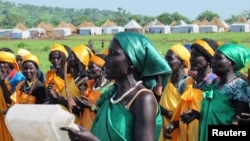On June 20th, we observe World Refugee Day. It is an occasion to highlight the plight of refugees around the world, commend their resilience, and express gratitude to their hosts.
According to the 1951 Convention on the Status of Refugees, a refugee is someone who, "owing to a well-founded fear of being persecuted for reasons of race, religion, nationality, membership of a particular social group or political opinion, is outside the country of his nationality, and is unable to, or owing to such fear, is unwilling to avail himself of the protection of that country." In 2017, the world’s refugee population topped 25 million, more than ever before.
The displaced come from all walks of life, singly and in families, across a wide spectrum of ethnic, religious, economic and educational backgrounds. But they have one thing in common: all have been forced from their homes and homelands. They flee to escape persecution or violent conflict, including terrorism. Often, people flee because their towns have been turned into battlefields and staying means nearly certain death.
This is a global crisis that is affecting more men, women, and children than ever before and for longer and longer periods of time.
As we observe World Refugee Day, we are reminded that as long as violence and persecution continue, there will be a pressing need for comprehensive humanitarian action and a global response. That is why the United States is proud to continue its leadership in providing humanitarian aid around the world. This life-saving assistance protects refugees, feeds those who might otherwise starve, shelters those who would otherwise be exposed to the elements, ensures access to safe clean water and basic healthcare, and more.
The United States is a nation of immigrants, and as Deputy Secretary John J. Sullivan said, “helping those in need is and always has been one of our country’s core values.”






